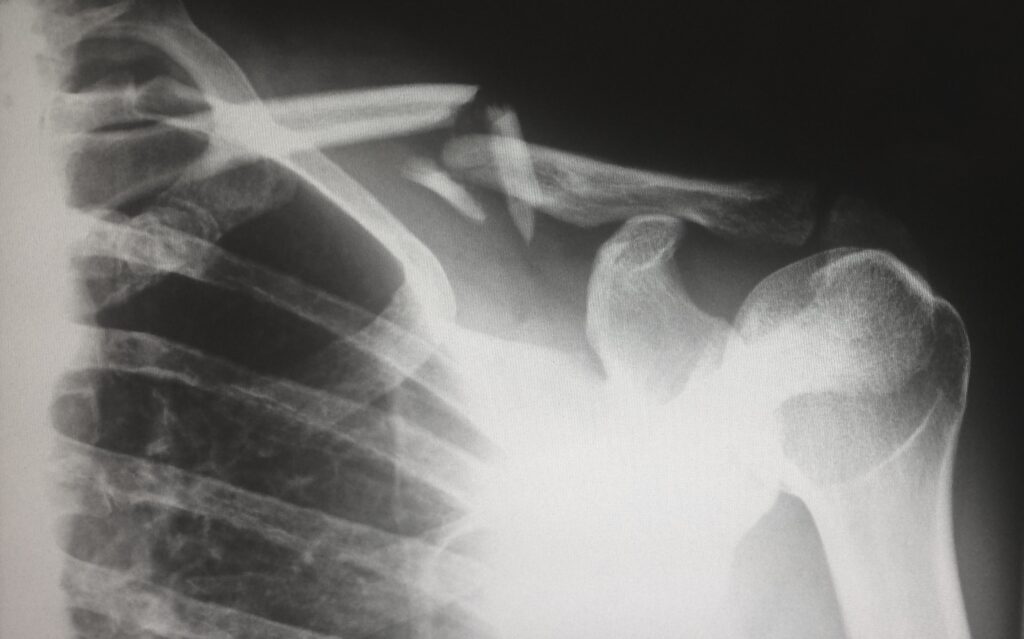Effects of Car Accidents

Nearly 2.3 million Americans sustained injuries after car accidents in 2020. Many people experience minor injuries and make full recoveries. But the effects of car accidents can last months, if not years. How can a car accident affect your neck, back, and brain? What mobility issues can you develop? Are there any psychological effects of car accidents? Answer these questions and you can make your complete recovery from all of the effects of car accidents.
Whiplash
Whiplash occurs when your neck moves back and forth like a whip. This causes soft tissues in your neck to tear or break, though your bones and tendons may not be affected. The symptoms of whiplash may be immediately apparent. You may experience searing or tearing pain, similar to a muscle sprain. You may have difficulty moving your neck or twisting your body at the waist.
Some cases of whiplash resolve themselves without treatment. But your whiplash can become chronic, and you may develop pain in your head, neck, and shoulders. You also may experience sensations as though you are being pricked with pins.
Your pain may impede your ability to work, especially if you need to move around or pick up objects. You may become irritable and have difficulty sleeping. Whiplash is one form of soft tissue damage you can sustain. You may develop bruises and muscle strains, but they are not long-term effects of car accidents.
Swelling and inflammation can be aftereffects of car accidents if you suffer from bone fractures and internal bleeding. You may experience pain or difficulty moving. The symptoms can be inconsistent, so your pain may surface at odd moments.
Mobility Issues 
You may encounter a few problems with your mobility after an accident. If you broke a bone in your limb, you may be unable to move your limb without pain or stiffness. If you damaged your spinal cord, you may become a paraplegic or tetraplegic. You may be unable to walk or move any of your limbs. Paraplegia and tetraplegia can affect your breathing, requiring you to use a breathing machine and pressurized oxygen.
You may also have a herniated disc. This occurs when your vertebra breaks, irritating your spinal nerves. In addition to extreme pain, you may experience trouble walking and focusing on your work.
A head injury can cause disorientation, even months after the accident. You may not be able to walk across a room without assistance. You may find it difficult to tell where you are in relation to other objects.
Mobility therapy can cost you thousands of dollars, even for a minor injury. You should prepare a lawsuit with a personal injury attorney, but you should do your research first. Evaluate the privacy policy of a firm and get customer reviews before you pick someone to hire.
Post-Concussion Syndrome
A concussion occurs when your brain moves rapidly, tearing or contorting brain cells. The symptoms of a mild concussion include confusion, severe headaches, and blurred vision. A severe concussion can cause loss of consciousness and seizures. These symptoms can last a few days. They can also last for weeks, months, and years as part of a condition called post-concussion syndrome.
In addition to physical problems, people with post-concussion syndrome develop psychological issues. Their personalities may change, and they may become restless and aggressive. Some people also develop apathy, losing interest in activities they previously enjoyed.
Your chances for post-concussion syndrome increase if you have had previous concussions. People with personality disorders and psychiatric conditions like depression are also at higher risk. There is no known cure for post-concussion syndrome. You can receive treatment for your symptoms, including psychotherapy, but your symptoms may continue.
Post-Traumatic Stress Disorder
Post-traumatic stress disorder (PTSD) can occur after an accident. You do not have to receive a physical injury in order to develop PTSD. You may experience flashbacks or nightmares if you drive by the scene of your accident or witness another collision. As a result, victims often avoid driving or being near the location of their accident.
Also, the effects of car accidents can make injured victims feel easily startled or on edge. Reminders of your accident may cause your irritability, but you may feel irritable regardless of where you are or what you are doing. Your irritability may lead to outbursts or insomnia.
Other symptoms include trouble remembering things about your accident and blaming yourself for what happened, even if the other driver was at fault. You may lose interest in other activities or feel intense guilt for no apparent reason. In other cases, some people develop anxiety or depression. The effects of a car accident may fade with time, but other people need therapy to cope with their symptoms.
The Long-Term Effects of Car Accidents

You may live with the effects of car accidents for years to come. Whiplash may destroy tissues in your neck and shoulders, leading to persistent pain. You may damage your spinal cord, break a bone, or tear muscles, making it hard to walk.
A concussion can be disorienting, but symptoms can develop into a post-concussion syndrome. Even if you don’t have physical pain, you may develop psychiatric pain and post-traumatic stress disorder.
The recovery process is a long one, but you can get started today. Sierra Accident Lawyers serves the city of the Rancho Cucamonga area, helping victims recover compensation for the trauma they suffered after a car accident. Contact us today for a free consultation.


